Geography
Stanwell Fields Curriculum Intent
Throughout the school, our work is based on principles which are shared by all staff. It is our belief that we should:
-
develop and value the whole child and enable them to flourish as individuals.
-
give children the opportunity to learn about the wider world and their place within it.
-
ensure children have the knowledge and skills needed to achieve during the next stage of their education and in the future.
-
give children the opportunity to enjoy learning, flourish and achieve in a peaceful, supportive environment of Christian love and care and build respectful relationships.
To read more about out aims and curriculum intent, please visit our curriculum page.
Geography: Purpose of Study
A high-quality geography education should inspire in pupils a curiosity and fascination about the world and its people that will remain with them for the rest of their lives. Teaching should equip pupils with knowledge about diverse places, people, resources and natural and human environments, together with a deep understanding of the Earth’s key physical and human processes. As pupils progress, their growing knowledge about the world should help them to deepen their understanding of the interaction between physical and human processes, and of the formation and use of landscapes and environments. Geographical knowledge, understanding and skills provide the frameworks and approaches that explain how the Earth’s features at different scales are shaped, interconnected and change over time.
Geography: Aims
Aims The national curriculum for geography aims to ensure that all pupils:
- develop contextual knowledge of the location of globally significant places – both terrestrial and marine – including their defining physical and human characteristics and how these provide a geographical context for understanding the actions of processes
- understand the processes that give rise to key physical and human geographical features of the world, how these are interdependent and how they bring about spatial variation and change over time
- are competent in the geographical skills needed to:
- collect, analyse and communicate with a range of data gathered through experiences of fieldwork that deepen their understanding of geographical processes
- interpret a range of sources of geographical information, including maps, diagrams, globes, aerial photographs and Geographical Information Systems (GIS)
- communicate geographical information in a variety of ways, including through maps, numerical and quantitative skills and writing at length.
We follow the National Curriculum for Geography. The programmes of study for key stage one and two can be found below:
Geography at Stanwell Fields
At Stanwell Fields, we use Cornerstones to support our delivery of the Geography curriculum. There are dedicated knowledge rich projects in each year group.
In the autumn term children in year 1-6 complete an essential skills Geography project. This often focuses on mapwork, place and locational knowledge and always includes the opportunity for fieldwork and a local enquiry: for example, 'How is land used around our school?' in Year 3, or exploring the hypothesis 'The place where we live has good transport links.' in Year 5.
In the spring or summer term, they complete a project covering other aspects of the national curriculum programme of study. In each of these projects, children demonstrate their learning through an innovate task. For example, writing a magazine article for 'Pole to Polar', a company specialising in Arctic Circle cruises where children need to demonstrate their knowledge of the region during the Frozen Kingdoms project in Year 6.
You can read more about the content of each knowledge rich Geography project in the document below.
Geography Overview for Parents
Geography Milestones


